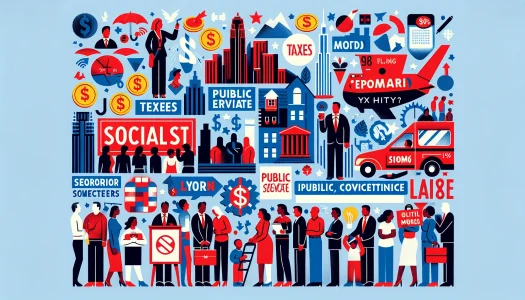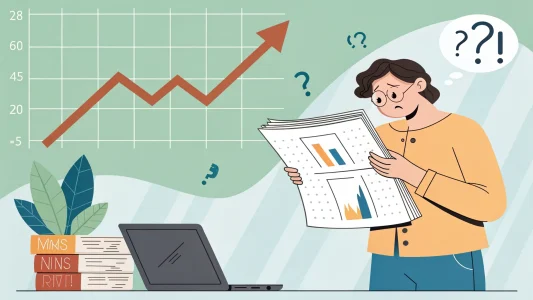It might surprise you to learn that I wasn’t exactly homecoming royalty in high school. Think of Screech from “Saved by the Bell” more than the suave financial expert you know today. Honestly, I’ve blocked out most of those years.
There is one thing, however, that I didn’t block out. The things I didn’t learn in high school. Specifically, the personal finance lessons I missed in high school. And, are you ready for this? A few days after I published that article, my old consumer education teacher emailed me. And, she wasn’t exactly thrilled.
“Jeff, after reading your Good Financial Sense blog post this morning… I am curious if your post is fiction or nonfiction. I seem to have a different recollection of your high school days.”
Ouch. There’s nothing like having your former teacher fact-check your statement.
I responded right away to assure her she wasn’t a terrible instructor — I think I got a B in her class, so I must’ve liked her. Truth be told, I don’t remember learning any practical money skills.
If I didn’t retain them, what chance does the average teen have in this world that is constantly changing?
Ultimately, we’re sending young adults into an economy that’s all digital, side hustle-driven, expensive as hell, and completely uncertain — with a money education that’s barely evolved since 1985. We need to fix that.
Table of Contents
ToggleWhy Financial Education Matters More Than Ever
First, let’s face some hard truths:
- The emergency fund crisis. According to Bankrate, only 46% of Americans have enough emergency savings to cover three months’ expenses. Additionally, 30% of Americans have some emergency savings, but not enough to cover three months’ expenses, and 24% have none. One popped tire or dead laptop, and boom–credit card time.
- The debt epidemic. People are devoured by debt, including credit card, student loan, and auto loan debt. In fact, the average American owes over $120,000 in mortgages, auto loans, student loans, and credit cards. We’re building wealth for banks, not for ourselves.
- The confidence trap. Almost everyone thinks they’re good with money. Confidence, however, often outruns competence, which leads to poor financial decisions.
To change that story, we need to start earlier. Listed below are seven money skills I wish someone had taught me when I was a teenager.
1. Credit Cards, Interest Rates, and the New Debt Traps
Credit card debt was a problem for my parents. Guess what happened to me? Same story. I was thousands in the hole before I graduated, chasing the dopamine rush of swiping plastic.
The kicker? If you max out a $500 card and only make minimum payments, it’ll take you seven years to pay it off. What started as a $20 T-shirt turned into a $200 mistake.
Today, unfortunately, the traps are even slicker. Rent-to-own offers, “Buy Now, Pay Later” (BNPL) apps, and high-interest microloans make debt seem convenient. But it’s the same old trap in prettier packaging.
For example, according to LendingTree, nearly half of BNPL users (47%) have paid late on one of these loans at some point. This can result in late fees that quickly add up, increasing the total cost of your purchase and hurting your credit score.
Here’s the golden rule: if you can’t pay it off in full each month, you can’t afford it. Period.
2. Understanding and Building Your Credit Score
I once had an intern whose parents believed credit cards were the devil, so he avoided them entirely. The result? No credit history, and a credit score in the low 600s.
That’s a significant problem in today’s world. Renting an apartment, getting a car loan, or even landing a job depends on your credit score.
As such, students should be taught how FICO scores are calculated, how to check their credit reports, and how to fix errors. You can begin small by getting a secured credit card, using it responsibly, and paying it on time every month. Then, watch your score climb.
At the end of the day, your credit score isn’t a mystery. It’s a mirror of your habits.
3. Budgeting Basics: The Roadmap to Wealth
The idea of budgeting sounds boring and restrictive — especially when you’re in high school. It’s kind of like financial broccoli. But here’s the truth: you can’t build wealth without knowing where your money goes.
Subscriptions, food delivery, and impulse purchases are some of the ways people leak cash.
Learn a straightforward system, such as the 50/30/20 rule. This is where 50% of the budget goes to needs, 30% to wants, and 20% to savings or debt. An alternative is a zero-based budget, in which every dollar has a purpose.
You shouldn’t think of budgeting as a punishment. It’s more like a permission slip. That’s what lets you say “yes” to the things that really matter.
4. Financial Tracking in a Digital World
Back in the day, I “balanced” my checkbook by hitting the ATM, withdrawing $20, and seeing what popped up on the receipt. Because of that, I ended up bouncing checks and owing $75 in overdraft fees.
Today’s equivalent? Relying on your “available balance” in your banking app instead of tracking your spending. Trust me, those pending charges will destroy you.
As such, money management today means:
- Tracking cash flow with apps like YNAB, Monarch, or even Google Sheets.
- Knowing the difference between pending and posted transactions.
- Don’t be fooled by overdraft protection. It’s a bank’s profit machine.
Rather than letting your balance take over your life, remember that you are in control of it.
5. The Magic of Compounding Interest
Even after learning about compound interest in college, I still had trouble grasping it.
However, the concept is simple. Your money makes money, and then that money makes more money.
If an 18-year-old invests $100 a month and earns an average return of 8% by age 60, it will be worth nearly $400,000. But you’ll end up with about half if you wait until 28.
The classic “magical penny” story is true — a single penny doubled in 30 days beats $2 million in one go. That’s the power of getting started early.
6. Understanding the Basics of Investing
My lack of understanding of compounding led me not to understand investing, either. ETFs, mutual funds, stocks — it was all Greek to me.
Upon graduation, every student should understand the difference between:
- A Roth IRA and a 401(k) — and why that employer match is free money.
- Active investing (stock picking) vs. passive investing (index funds).
- The steps for opening a brokerage account with companies such as Fidelity, Schwab, or Vanguard, and automating small contributions every month.
Investing isn’t gambling. It’s long-term ownership.
7. How to Start a Business (a.k.a. The Entrepreneurship Mindset)
This one’s my favorite. In the same way algebra is taught in high schools, entrepreneurship should be taught as well.
It’s not about the MBA — it’s about mindset and the basics;
- Customer service. Building trust and treating people well.
- Marketing. Selling a skill using social media or a simple website.
- Integrity. Make a promise, then keep it.
In a gig economy, understanding how to turn an idea into income isn’t optional—it’s essential.
Teach kids that they don’t just have to get a job. They can create one.
The Ultimate Wealth Hack
Because I didn’t have a road map when I was younger, I made every financial mistake in the book.
But you don’t have to repeat that story.
The ultimate wealth hack has nothing to do with stock tips or cryptocurrencies. It’s about mastering these seven money skills before you get your first big paycheck or student loan debt.
The combination of knowledge and time is unstoppable. If you learn these now, you’ll have a head start that most adults can only dream of.
Image Credit: Ivan Samkov; Pexels
















